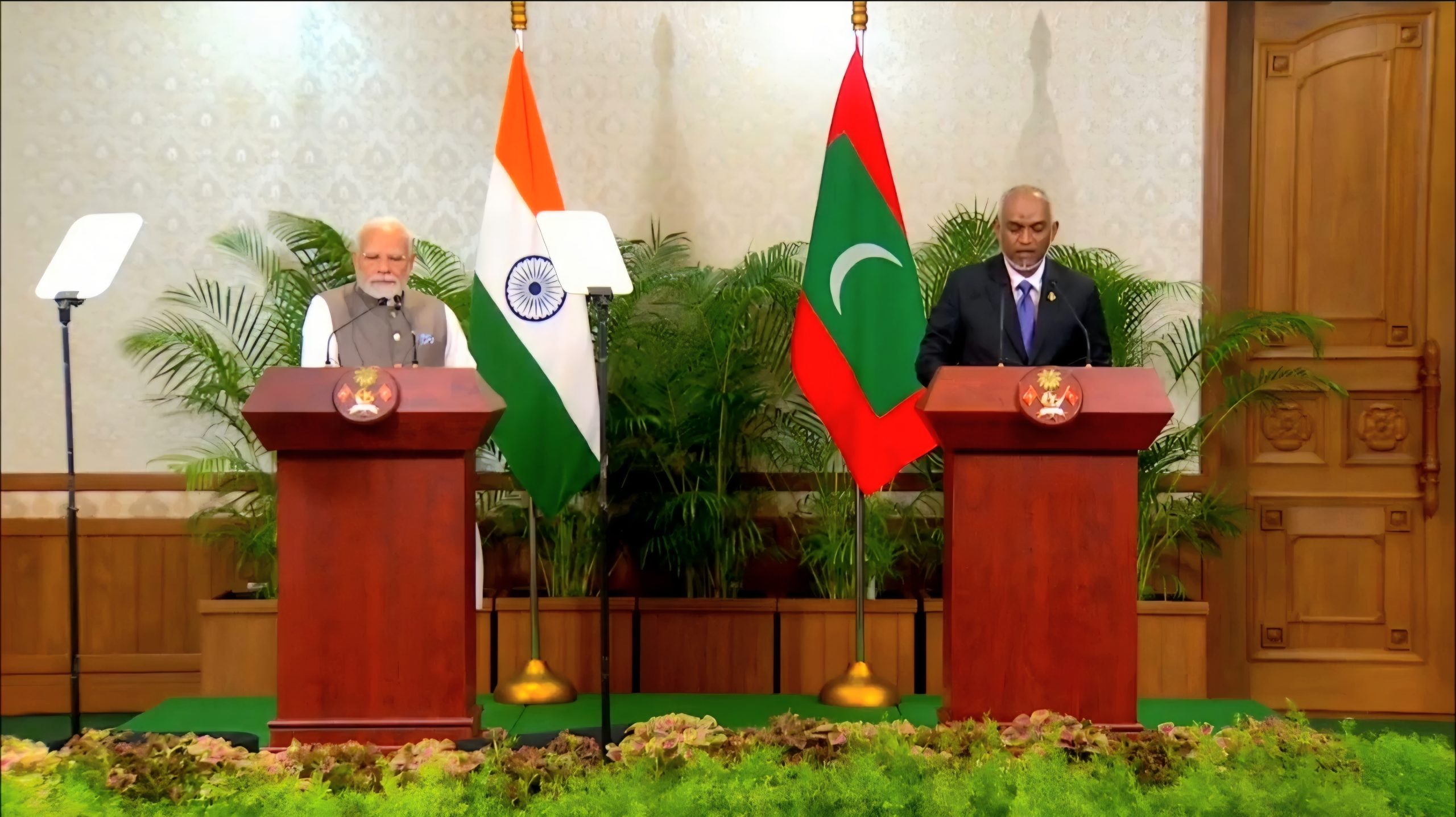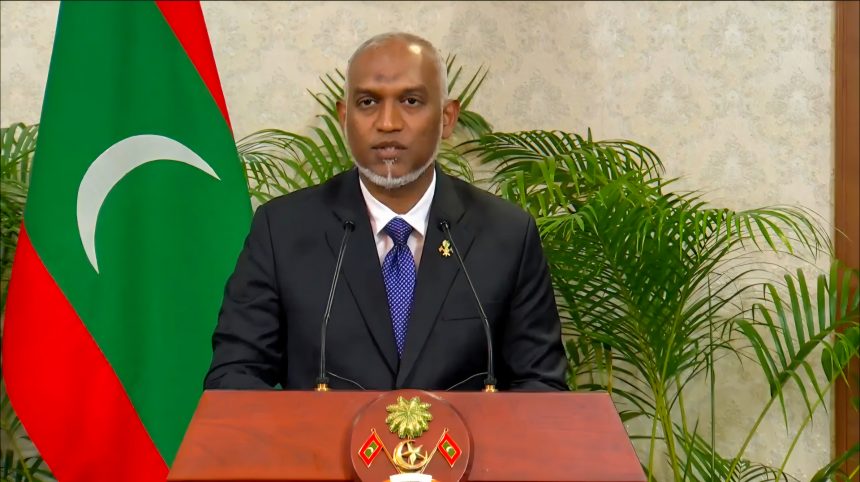In a historic moment that reaffirms the Maldives’ growing regional stature, President Dr. Mohamed Muizzu has announced a sweeping new chapter in Maldives-India relations, marked by the signing of several strategic agreements and a deepened commitment to mutual development.
Welcoming Indian Prime Minister Narendra Modi to the Maldives on the eve of the country’s 60th Independence Day, President Muizzu described the visit as “symbolic and timely,” underscoring the enduring diplomatic bond between the two nations. The two leaders commemorated six decades of formal diplomatic relations by jointly unveiling a special stamp, a gesture that captures the spirit of partnership built over generations.

Speaking at the joint press conference held at the President’s Office, President Muizzu detailed the outcomes of high-level bilateral talks held earlier in the day. He described the discussions as “extensive and future-focused,” with both leaders reviewing past achievements and laying the groundwork for transformative collaboration across key sectors.
Among the most significant outcomes is the signing of a new US$565 million Line of Credit agreement, aimed at accelerating critical infrastructure and social sector projects in defence, healthcare, sports, education, and housing. President Muizzu also announced the formal launch of negotiations for a Free Trade Agreement between India and the Maldives — a move he called “a milestone step in reshaping the economic architecture of the Maldives.”
“This landmark initiative will open new economic frontiers and deepen commercial ties between our two nations,” said President Muizzu, thanking India for its consistent support in stabilising the Maldivian economy, including through a US$400 million currency swap facility and a one-year interest-free rollover of Treasury Bills in May 2025.
The two leaders also inaugurated key infrastructure projects financed under Indian assistance, including the Dhoshimeyna Building and the expansion of housing developments, with the handover of 3,300 additional flats under the 4,000-unit housing project. These initiatives form part of President Muizzu’s national agenda to ensure affordable housing for all Maldivians.
Further reinforcing the defence partnership, India has donated 72 vehicles to the Maldives National Defence Force, enhancing operational capacity and logistical readiness. On the social development front, India’s contribution of medical cubes was also lauded, particularly for its importance in delivering healthcare to the Maldives’ dispersed island communities.
With India continuing as a top tourist source market, the two leaders discussed expanding tourism links and improving direct air connectivity to boost arrivals and economic engagement.
Environmental cooperation also featured prominently. The Maldives seeks India’s technical assistance in waste management, biodiversity protection, renewable energy, and water and sanitation. In recognition of India’s global climate leadership, President Muizzu pledged Maldives’ full support for India’s hosting of COP33, expressing confidence in its ability to lead meaningful climate negotiations.
President Muizzu emphasized the significance of cultural and people-to-people connections as the cornerstone of bilateral ties, citing shared heritage, education, tourism, and familial bonds as the bedrock of goodwill between both nations.
Looking ahead, the President reaffirmed his government’s commitment to expanding cooperation with India through continued high-level engagements.
“Today’s agreements are more than diplomatic achievements; they are a declaration of shared intent. I thank Prime Minister Modi for his unwavering commitment to our partnership. Together, we will chart a future of prosperity, resilience, and mutual respect” President Muizzu declared.
As the Maldives prepares to celebrate 60 years of independence, this deepened alliance with India signals the dawn of a new era in regional diplomacy — one anchored in trust, progress, and sovereign collaboration.




